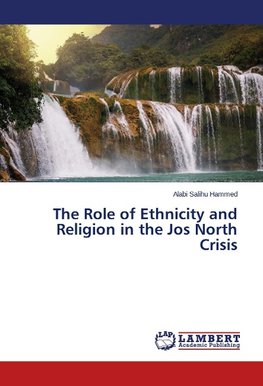
-
 Anglický jazyk
Anglický jazyk
The Role of Ethnicity and Religion in the Jos North Crisis
Autor: Alabi Salihu Hammed
Jos is one of the most peaceful cities in Nigeria and due to this fact it attracted different ethnic, religious groups and foreigners, the most notable ethnic group are Yoruba, Igbo, Ebira, Hausa/Fulani, among others. The peaceful history of Jos changed... Viac o knihe
Na objednávku
49.72 €
bežná cena: 56.50 €
O knihe
Jos is one of the most peaceful cities in Nigeria and due to this fact it attracted different ethnic, religious groups and foreigners, the most notable ethnic group are Yoruba, Igbo, Ebira, Hausa/Fulani, among others. The peaceful history of Jos changed in 1991 when Jos North Local Government was created by General Ibrahim Babagida's regime for the Hausa/ Fulani whom were seen as settlers. The creation did not go down well with the aborigine's i.e Berom, Afizere, Angas among others who saw the creation as a strategy by the Hausa / Fulani to rule over them politically. The tension became palpable following the appointment of a Hausa/ Fulani candidate to Chair the Jos North Local Government Council consequent to opposition from the indigenes. The violence immediately acquired religious and ethnic coloration as the indigenes insisted that the government had to replace the chairperson with a candidate from one of the indigenous communities. The crisis which began on the 12th of April, 1994 led to the death of four persons. From 1994 till present, Plateau state has been in one form of crisis and the other which has adverse effect on the socio-economic development of the state.
- Vydavateľstvo: LAP LAMBERT Academic Publishing
- Rok vydania: 2015
- Formát: Paperback
- Rozmer: 220 x 150 mm
- Jazyk: Anglický jazyk
- ISBN: 9783659446795









 Ruský jazyk
Ruský jazyk 


